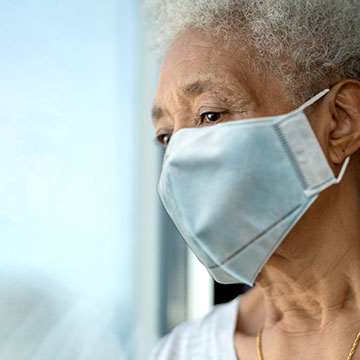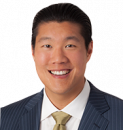Solving for the Racial Disparities Crisis in Coronavirus Deaths

We have a problem with the coronavirus that isn’t being addressed. We’ve known from the beginning the elderly need more protection. We’ve been leveraging social distancing for a while now. And, there are many efforts to solve hospital supplies, study treatments...
But there is one important thing our nation is not addressing: the racial disparity problem.
Data reported in a number of news outlets recently show that the coronavirus is far deadlier among minority populations than it is among white populations. In New York City, early data show that the virus is twice as lethal among African American and Latino citizens versus white citizens. Similarly, in Louisiana, statistics indicate that 70 percent of those who have died are African American, though only about one-third of the state’s population is black.
These media reports offer a variety of possible explanations for the disparities during coronavirus. Communities of color experience significant gaps in healthcare services, and minorities are at a higher risk for underlying health conditions, such as diabetes, heart disease, and obesity — factors that increase mortality rates of having COVID-19. Many Americans of color are reluctant to seek care in the first place because they have a deep-seated — and historically valid — distrust of medical and public health authorities. And, of course, there is the challenge of living in densely packed urban communities, where social distancing can seem next to impossible.
As I read these reports, I couldn’t help but think about our ChenMed patients across eight states. A majority of them are African American and most come from challenging socio-economic circumstances. This is the population we have been serving for decades, and we’ve learned a lot from being focused on these communities and neighborhoods. Right now, they are at increased risk. Not just from COVID-19, but also because conditions such as congestive heart failure and diabetes can easily spiral out of control while stuck at home with limited access to supplies and food. All the while, our primary care providers have helped reduce the rate of hospitalizations since the coronavirus outbreak. I say that not to brag but to make a point: Minorities who fair better than other similarly situated patients are not necessarily better because of luck or a marvel of modern medicine, but rather having a doctor who is committed to providing high-quality primary care that strengthens the relationship between doctor and patient. While such relationships can’t be developed overnight — crisis or no crisis — there are short- and long-term steps physicians can take to improve the relationships they have with minority patients and, ultimately, save lives during the COVID-19 pandemic and beyond.
Short-Term: Engage in proactive outreach
We are committed to keeping our patients healthy, happy, and at home — not by closing our practice and hoping they stay home, but by remaining infrequent (mostly virtual) contact with them — in fact, more frequent contact during these stressful times. We’re emphatic that we, not their local emergency department, should be their first call if they have concerns — health or non-health related. Staying home doesn’t mean we stop care management of heart failure or other chronic diseases. And, now we have an added imperative to get beyond the “clinical.” If a high-risk patient breaks social distancing to run around town looking for toilet paper, the chance of something bad happening is high. We are taking inspiration to empower staff and meet the needs of our patients from the preeminent service organizations in the world. In fact, one member of our Board of Directors is the founder of the Ritz Carlton and he shared their famous staff empowerment mantra of “no questions asked, delight your guest.” The challenges our patients, and minorities in general, face can only be resolved if people are empowered to help them. We call our current policy the “H3” guidelines to keep patients Healthy, Happy, and at Home. We tell the team it’s a “no questions asked, be wise and do what you need to do” policy.
We are also taking the time to appreciate and try to solve for the challenges that may be affecting these more vulnerable communities during this time. One of our ChenMed physicians, LaToya Fulton, a primary care provider at the JenCare Senior Medical Center in hard-hit New Orleans, explained it this way: “I educate my patients what’s going on with the COVID virus and their health in general. I speak not only to them, but to their family members as well, about how to decrease the spread of this virus, and that has been working well.”
For many primary care physicians who have panels of 2,000 to 3,000 patients, this kind of relationship with every patient is a daunting prospect. To start, break it into a more manageable task: Who are the 50 to 100 patients on your panel whose health or social conditions are severe and put them at the most risk? Those with heart disease, cancer diagnoses, or advanced COPD may well be first on your list, particularly if they live alone. You might also prioritize contacting your diabetic patients who struggle with controlling their sugar levels. Start your outreach with these patients, and you’ll make a difference faster than you think.
Long-Term: Build trust with intention
If a random financial advisor called you today and told you where to invest in the market, would you take their advice? I highly doubt it. But if a financial adviser with whom you’d worked for years called to give you some pointers on your portfolio, what would you do? You’d probably consider what he had to say.
Unfortunately, the physician-patient relationship has become just about as transactional as the first situation I’ve just described. Many patients do not have a trusting relationship, or in fact any relationship, with their PCP. Unfortunately, in stressful situations like this, the lack of this relationship can have dire consequences. As a physician, I have received countless calls from friends and family about the coronavirus, but also about all kinds of health challenges. They simply don’t know who to trust or don’t have a doctor they can access right now. The need for access to help and information is a universal challenge. The problem is that, while I’m happy to help my friends, imagine the millions out there who don’t have a personal friend or relative who is a doctor. And, remember, those without a doctor in their friend network are likely to be in the demographic that is most at-risk.
The onus is on us, as physicians, to build that level of trust with our most vulnerable patients and their families. It takes time, and it also means paying special attention to patients who are older, sicker, and more disenfranchised. It’s not easy or fast work. But, the hard work pays off when you can call your patients during a public health emergency, explain to them the importance of measures like social distancing and avoiding the emergency room — and have them trust you enough to listen.
In many ways, the genie is out of the bottle on COVID-19. Thousands of Americans have died, and thousands more remain at mortal risk until we can bring the virus under control with treatment and a vaccine. But we, as physicians, have a tremendous opportunity — and obligation — to help keep the death toll in check. We must intervene where we can to ensure the infection rate and exacerbations with chronic diseases, particularly among high-risk populations like African American and minority seniors, decrease as much as possible.
Now is the time to begin laying the groundwork for stronger relationships with our patients so that if and when another public health crisis arises, we’re not playing catch-up like we have been with COVID-19: Instead we’re ahead of the game.




